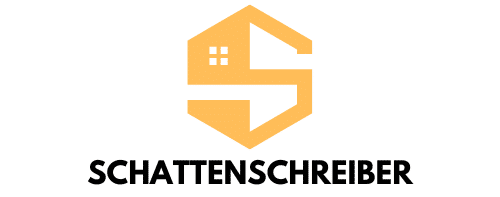Can AI Models Assist in the Efficient Management of Urban Waste and Recycling?

Understanding the importance of waste management and recycling is something we can all agree on. In our rapidly modernizing world, we create vast amounts of waste every day, and handling this waste effectively is a challenge. But what if we told you that the solution might lie in the realm of artificial intelligence? Yes, you heard it right! Artificial Intelligence (AI) is now playing a pivotal role in waste management, specifically in the areas of garbage classification, recycling, and even waste collection.
AI and Waste Classification
Waste classification is a crucial step in the waste management process. It involves sorting different types of waste into categories for appropriate recycling or disposal. Traditionally, this process was time-consuming and often inaccurate.
In the same genre : What Role Do AI Models Have in the Development of Smart Retail Solutions?
Enter AI. AI systems use machine learning algorithms to classify waste accurately and efficiently. These systems are designed to analyze data from various sensors, such as cameras and infrared sensors, to identify different types of waste.
For instance, a smart waste classification system based on AI could distinguish between a plastic bottle, a glass bottle, and a can, just by analyzing the data from the camera. Moreover, these systems can learn and improve their accuracy over time, thanks to machine learning.
In parallel : How Are AI Models Transforming the Personalization of E-learning Content?
AI-based waste classification systems can be integrated into existing waste management infrastructure, such as recycling facilities and waste collection trucks. This way, the waste can be sorted at the source, reducing the need for manual sorting and improving the overall efficiency of the waste management process.
AI in the Recycling Process
After the waste is sorted, it’s time for recycling. Again, AI can play a significant role here. AI systems can analyze data about the waste and suggest the most efficient recycling methods.
Take, for example, a smart recycling system that uses AI to analyze the composition of the waste. This system can predict what materials can be recovered from the waste and how. It might suggest, for instance, that a certain amount of plastic can be recycled into new plastic products, while the glass can be melted down and used to make new glass products.
Furthermore, these AI systems can also keep track of the recycling process and alert the operators in case of any issues. This way, the recycling process can be monitored and optimized in real-time, leading to significant cost and environmental benefits.
AI in Waste Collection
AI doesn’t just stop at classification and recycling, it can also revolutionize waste collection. Typically, waste collection is a static process – waste trucks follow a fixed route, regardless of the amount of waste. But with AI, this process can become much more dynamic and efficient.
For instance, AI can analyze data from smart garbage bins, which are equipped with sensors that detect when the bin is full. Based on this data, AI can design optimal routes for waste collection trucks, ensuring that only full bins are collected.
In addition, AI can predict when a bin is likely to be full, based on historical data. This way, the waste collection can be scheduled proactively, preventing overflowing bins and reducing the environmental impact.
AI and the Environmental Impact
While we’ve been talking about efficiency, let’s not forget about the environmental impact. AI can significantly reduce the environmental footprint of waste management.
Firstly, by improving waste classification and recycling, AI can reduce the amount of waste that ends up in landfills. This is good news for our environment, as landfills are a major source of greenhouse gases.
Secondly, AI can optimize waste collection routes, reducing fuel consumption and carbon emissions. And since AI can predict when bins will be full, it can prevent overflow, reducing litter and pollution.
Finally, AI can provide valuable data about the waste management process. This data can be used to make informed decisions about waste management policies and practices, leading to more sustainable and environmentally-friendly outcomes.
The Future of Waste Management with AI
So, what does the future hold for waste management with AI? The possibilities are endless.
In the near future, we could see more advanced AI systems that can classify waste even more accurately, recycle more materials, and optimize waste collection even further.
On a larger scale, AI could help design smart cities, where waste management is fully automated and highly efficient. These cities could have a network of smart garbage bins and recycling facilities, all managed by AI.
Furthermore, as AI technology improves, we could see AI models that can predict waste generation patterns, helping us to plan and manage waste more effectively.
AI is transforming waste management, making it more efficient and environmentally-friendly. And while there are challenges to overcome, the benefits of using AI in waste management are clear. So next time you throw something in the bin, remember: AI might be involved in dealing with your waste!
AI and Waste Management Education
Artificial Intelligence is not just limited to the physical aspects of waste management and recycling. It can play a significant role in the education and awareness of these topics as well. AI-enabled educational tools can provide valuable insights into the importance of recycling and waste management.
These tools could use machine learning algorithms to tailor educational content to the user’s understanding level. For instance, an AI-powered app could analyze the user’s previous interactions with the app, and adjust the complexity and depth of the information shown to them. This allows for a more personalized learning experience, which is more likely to engage the user and foster understanding.
AI can also use data analytics to identify trends and patterns in waste generation and recycling behaviors. This information can then be used to develop targeted educational campaigns. For example, if the data shows that a particular city has a low recycling rate, an AI-powered campaign could be developed to educate the residents of that city about the importance of recycling.
Moreover, AI could be used in interactive games or simulations that educate users about waste management. These games could simulate the waste management process, allowing users to see the impact of their actions in real-time. This hands-on approach to learning could significantly improve the understanding and adoption of good waste management practices.
Conclusion: The Impact of AI in Urban Waste Management and Recycling
There’s no denying that AI has the potential to revolutionize urban waste management and recycling. From waste classification, recycling, and waste collection to education and awareness, AI is making the process more efficient, cost-effective, and environmentally friendly.
With the integration of AI, waste management is no longer a static, one-size-fits-all process. Waste can be sorted and recycled more accurately, waste collection can be optimized, and citizens can be educated about the importance of waste management in a more engaging and personalized way.
However, the adoption of AI in waste management is not without challenges. These include the need for significant investment in AI technology and infrastructure, the need for regulations and standards to govern the use of AI in waste management, and the need to ensure the privacy and security of the data used by AI systems.
Despite these challenges, the future of waste management with AI looks promising. As the technology continues to evolve and improve, we can expect to see even more innovative and effective solutions to our waste management challenges. In the end, it will not only help cities manage their waste more efficiently but also contribute to a healthier and more sustainable planet.
